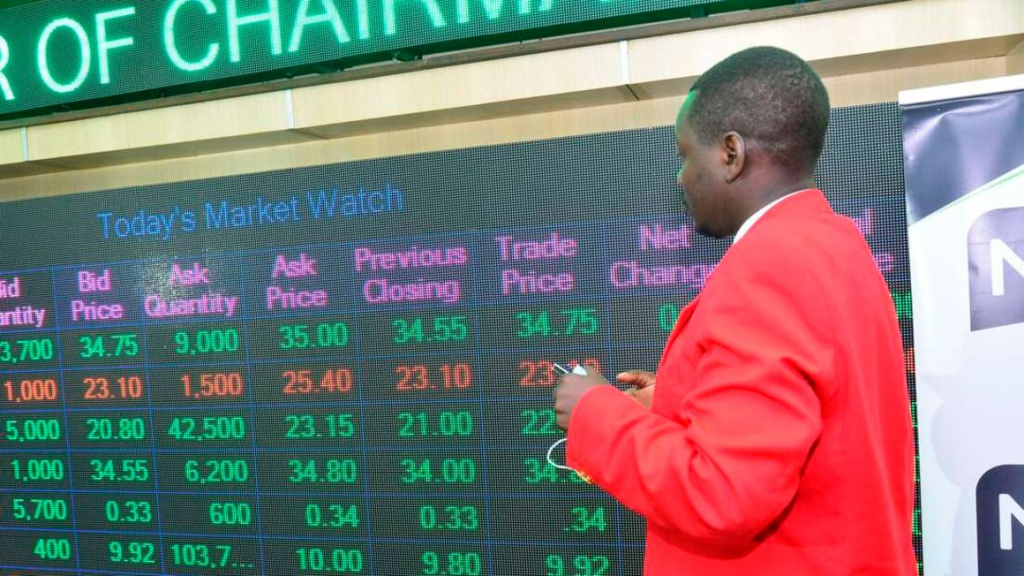The Nairobi Securities Exchange (NSE) has been ranked the third worst-performing major security market in Africa in 2022 as a result of foreign investor capital flight and ease of repatriation of equity sales compared to other capitals in the continent.
Data from EFG Hermes, an investment bank, shows that the Nairobi bourse is ranked eighth among the top 10 stock markets in the continent, beating only the securities from Ghana and Egypt in terms of earnings. The NSE had a return of -30% in dollar terms while Ghana and Egypt tied at -32%. At the top of the list is Nigeria Stock Exchange with 21% returns in 2022 with Botswana and Mauritius trailing with both having a return of -1%.
The performance of African securities markets has been negatively affected thanks to a reduced appetite for emerging markets caused by high inflation, leading to an increase in interest rates in developed markets such as the U.S. This flight of capital to the US market, where inflation is at an all-time high of 8.6%, and other developed nations has caused a fall in prices of African blue-chip firms listed that are a favourite of foreign investors.
Kenya, which is dominated by foreigners as the account for 55% of the turnover, has been heavily affected as a result as well as due to the lack of restrictions in moving in and out of the country. On the other hand, the situation is different in Nigeria, as investors find it more difficult to move capital out of the country. With returns at -30%, the NSE has wiped out Sh789 billion of investor wealth. This has seen NSE record lows not seen since 2017. The value of all stocks stood at Sh1.847 trillion compared to Sh2.636 trillion at the start of the year, while the NSE main index has dropped to a 19-year low on foreign investors’ flight.
According to Solomon Kariuki, head of research at AIB-AXYS Africa, the Kenyan market makes it easier for foreigners to sell off. “Despite a reported dollar scarcity locally and in several other African countries, the Kenyan market seems to be the least restrictive in terms of dollar access and hence makes it easier for foreigners to sell off. Additionally, the NSE is fairly liquid compared to other regional exchanges,” said Solomon Kariuki.
The fall at the NSE is partially as a result of Safaricom’s share price shedding about 38% of its share price value since January to Sh24 from Sh37.95 per share. Foreigners have an outsized exposure to the stock, owing to its large liquidity and performance, including profits and dividends. The shortage of foreign currency to repatriate proceeds to international investors has also created a vicious cycle where concerns of being trapped push traders to sell.
Additionally, local institutional investors have at the same time failed to step in and provide demand for the stocks as foreigners sell off, and are instead pushing their capital to fixed-income investments such as government bonds, which are currently offering better returns and safety compared to equities.


